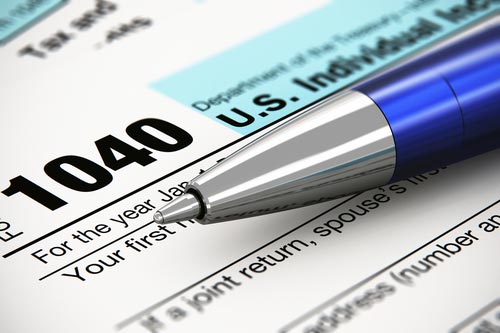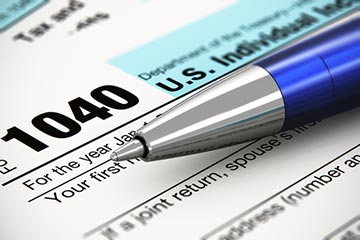
16 Mar 3 Common Mistakes When You Do Your Own Taxes
 By Mark T. Berry
By Mark T. Berry
You manage your own money in every other way. Why not take the do-it-yourself approach when it comes to taxes as well?
If you have only one source of income and take the standard deduction, your taxes are probably fairly simple. But as soon as you add dependents, change jobs, or buy a house, you start to see why the U.S. tax code is so very complex. There are rules for everything.
Here are the ways self-filers tend to mess up on their taxes.
1. Data-entry and math mistakes
Putting the decimal point in the wrong place, misspellings, or simply writing things on the wrong line can cause problems on your tax forms pretty easily.
And what about all those calculations! Remember when you were in 4th grade, and you wondered how your math class was at all relevant to real life? This is how. Even if you’re reasonably good at math, you may use math skills at tax time that you only use once a year. You’re understandably a little rusty.
Double-check everything, even if your tax software is theoretically calculating it for you.
2. Under-reporting your income
What counts as taxable income? It’s not always straightforward.
If you were a contractor who earned more than $600 from a single source, the company or person who hired you should send you a form 1099. But even if you earned less than $600 from each client, you’re still obligated to report your earnings to the IRS.
Some benefits you receive from your employer might be also taxable. Things like health insurance premiums for your sweetheart if you’re not married, and some tuition benefits paid for by your employer may count as taxable income.
3. Leaving deductible expenses on the table
Many, many of your living expenses are potential tax deductions, especially if you have dependents, work for yourself, or have a home office. It’s pretty hard to make sure you’re not missing any.
If you think you might be eligible for any deductions, it’s worth asking us about them or reading up on the rules.
Some common deductions that can reduce your taxes by thousands:
- Home office expenses
- Medical expenses if they’re a large percentage of your income
- Retirement savings–both by reducing your taxable income AND in the form of tax credits
- Educational expenses
- Dependent care expenses
- Business expenses
- Travel for business or medical purposes
- Charitable contributions
Not sure if you’re filling out your tax forms correctly? We’re still taking appointments. We may be able to help you get a bigger tax refund.


